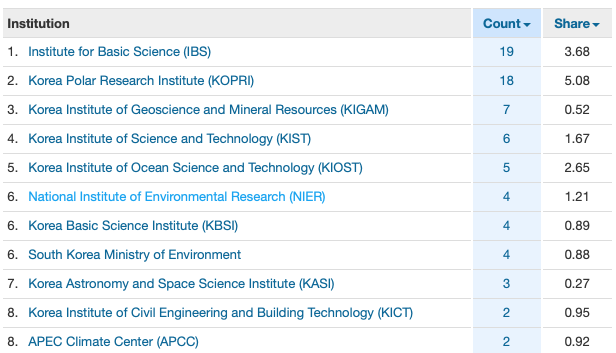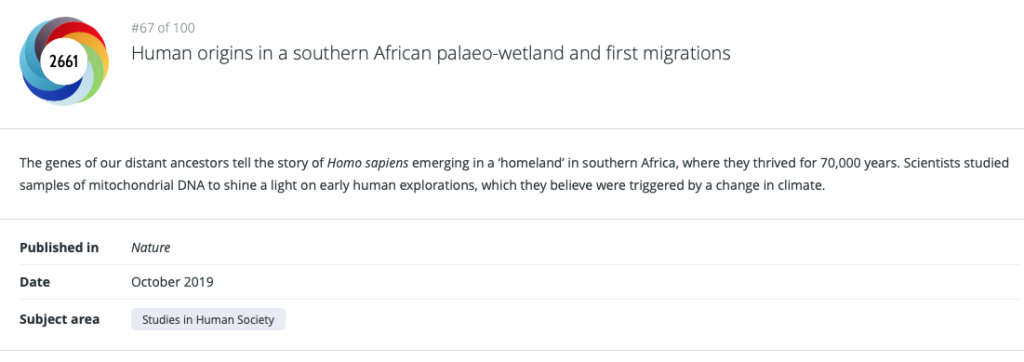According to the latest global academic ranking conducted by Nature index, ICCP ranks No. 1 (in terms of publication counts) among South Korean Government institutions in the field of Earth and Environmental Science. Since its inception in 2017, the ICCP has become South Korea’s leading institution in Earth System science, with 8 publications published from June 2019-May 2020 in journals with a journal impact factor larger than 9. ICCP’s research covers subjects such as Tropical Cyclones, El Nino, heatwaves, Arctic processes, Monsoon systems, ice-sheet dynamics, sea-level rise, wildfires, marine biogeochemistry, Global Warming, paleo-climate and Human migration. Much of this research is enabled through the IBS/ICCP supercomputer Aleph– a 1.4 PFlop Cray XC50-LC based on Skylake nodes.

In October 2019 ICCP members Axel Timmermann and Sun-Seon Lee, in collaboration with their colleagues from the Garvan Institute in Sydney, published the paper “Human origins in a southern African palaeo-wetland and first migrations” in Nature. This study made it into the 2019 top-100 list (No. 67) of the Altmetric score. This score measures the public attention received by scientific papers from all disciplines published worldwide in 2019.
